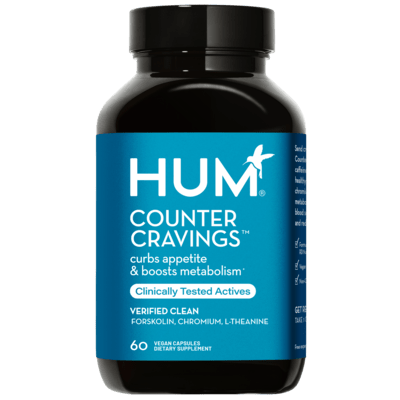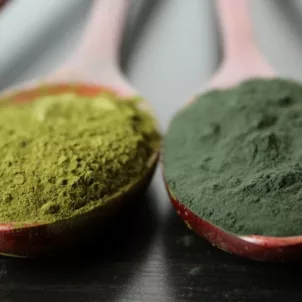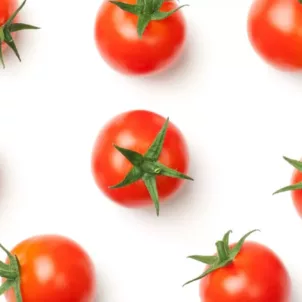THE WELLNEST • Food • Healthy Eating
Why Dinner Should Be Your Smallest Meal of the Day
By Rebecca Norris •
September 6, 2019
If you’ve ever dabbled with dieting, then you probably know that dinner should be the smallest meal of the day.
It may seem like a crock given just how common 9 p.m. dinners can be—not to mention the familiar pangs of late-night cravings. However, there’s actually science to back up this advice.
Keep reading to learn why it’s best to eat big in the morning and afternoon and aim for a light dinner.

Leptin vs. Ghrelin
Like so many life and weight loss quandaries, hormones are at the fore. When it comes to eating, “there are two very important hormones we need to talk about: leptin and ghrelin,” says Jennifer Maeng, MS, RD, CDN, CNSC, of Chelsea Nutrition in NYC. “Leptin is the ‘starvation hormone’ produced by our fat cells. It travels to your brain to regulate energy storage and food intake. Conversely, ghrelin is the ‘hunger hormone’ and is produced mainly in your stomach. It travels to your brain to stimulate appetite and promote fat storage.” According to Jennifer, ghrelin levels peak at twofolds before you eat and decrease about an hour post-meal. This process happens roughly every four hours, which accounts for why most people feel hungry within this time frame. While our ghrelin levels fluctuate all day, every day, they’re the highest in the morning due to not eating for more than four hours at a time, which causes a fasting state.Mealtimes for Weight Loss
“Studies examining weight loss show that fasting glucose, insulin, and ghrelin are reduced more in people who consume most of their calories earlier compared to later eaters,” Jennifer says. Simply put, packing more calories into breakfast and lunch will help you feel fuller for longer. In turn, you’ll experience fewer late-night cravings. Jennifer proceeds to note that, in addition to her own recommendations, studies show that eating a hearty breakfast and lunch can improve insulin sensitivity. “Insulin sensitivity is higher earlier in the day, which promotes carb absorption into your muscles and fat tissues,” she explains. Not hungry right when you wake up? No problem. “Aim for a substantial lunch that incorporates complex carbohydrates (think whole grains, legumes, and starchy vegetables), since you should limit them later in the day,” Jennifer suggests. Pair it with a lean protein and leafy greens, and you’ll be good to go.
The Best Foods to Eat at Night
Looking for the most effective way to lower ghrelin levels and abate that overwhelming sense of hunger? Fill your plate with proteins. “I usually advise my weight-loss clients to include a controlled portion of high-quality lean protein to their meals,” Jennifer explains. “High-quality lean protein (chicken, fish, and turkey) paired with high-fiber carbohydrates (non-starchy vegetables) really helps to boost satiety hormones and prevent insulin fluctuation.” Proteins are the best foods to eat at night given their dense, low calories and ability to lower ghrelin levels. However, it’d be unrealistic to think that you’d only eat proteins when you feel hungry past dusk. So what’s a healthy compromise? Simply do your best to avoid high-fat, high-carb foods that can negatively impact your blood sugar and insulin levels. Also, steer clear of energy-dense food in general, which can disrupt your circadian rhythm.More Tips to Avoid Late-Night Cravings
Pair Eating With Your Circadian Rhythm
Speaking of circadian rhythm, just like energy levels wax and wane throughout the day in correspondence with our biological cycle set by the sun, so does metabolism. “Studies show that insulin, a hormone released when we eat, adjusts circadian rhythms in many different cells and tissues individually,” Maeng explains. “Insulin provided at a ‘wrong biological time’ can disrupt normal circadian rhythm, leading to less distinction between day and night.” While that may not seem like the worst thing in the world—considering it’s been shown to increase the incidence and severity of cardiovascular disease, diabetes, and other illnesses—it’s certainly worth taking note. One way to put that knowledge to work is to sync up your eating patterns with your natural circadian rhythm. Maeng suggests limiting eating after sunset, aiming for at least 12 hours between dinner and breakfast the next morning.Get enough shut-eye
It’s important to put as much thought into your overall well-being as you do the number of calories on your dinner plate. Sure, different amounts of sleep don’t come with varying calorie levels, but the number of hours you sleep each night can play a pretty big role in your weight and overall health. “Inadequate sleep can negatively impact leptin and insulin levels,” Maeng says.Work Out (And Don’t Stress Out)
“Physical activity reduces leptin resistance and increases certain satiety hormones,” Maeng notes. And whatever you do, don’t forget to find ways to manage your stress. “High cortisol levels from stress correlate with high levels of insulin. These spikes can lead to high-fat, high-carbohydrate food cravings,” Maeng explains.More like this









